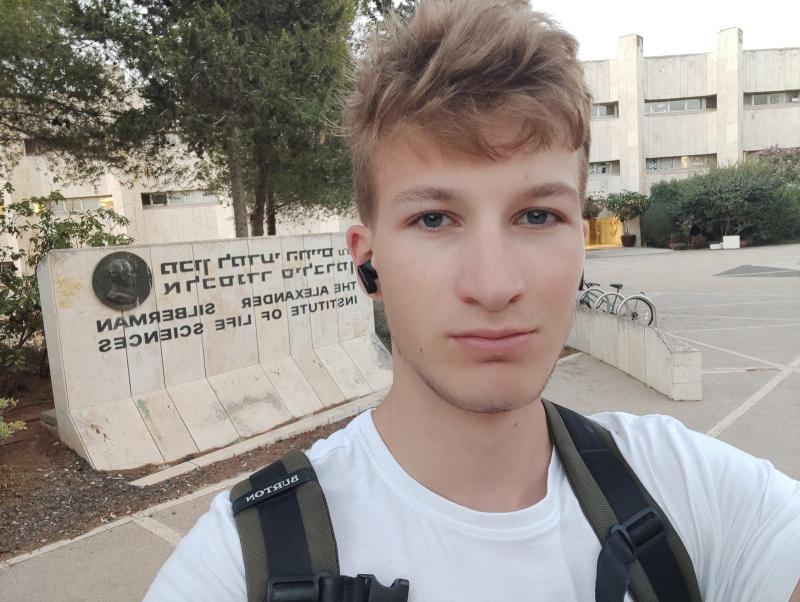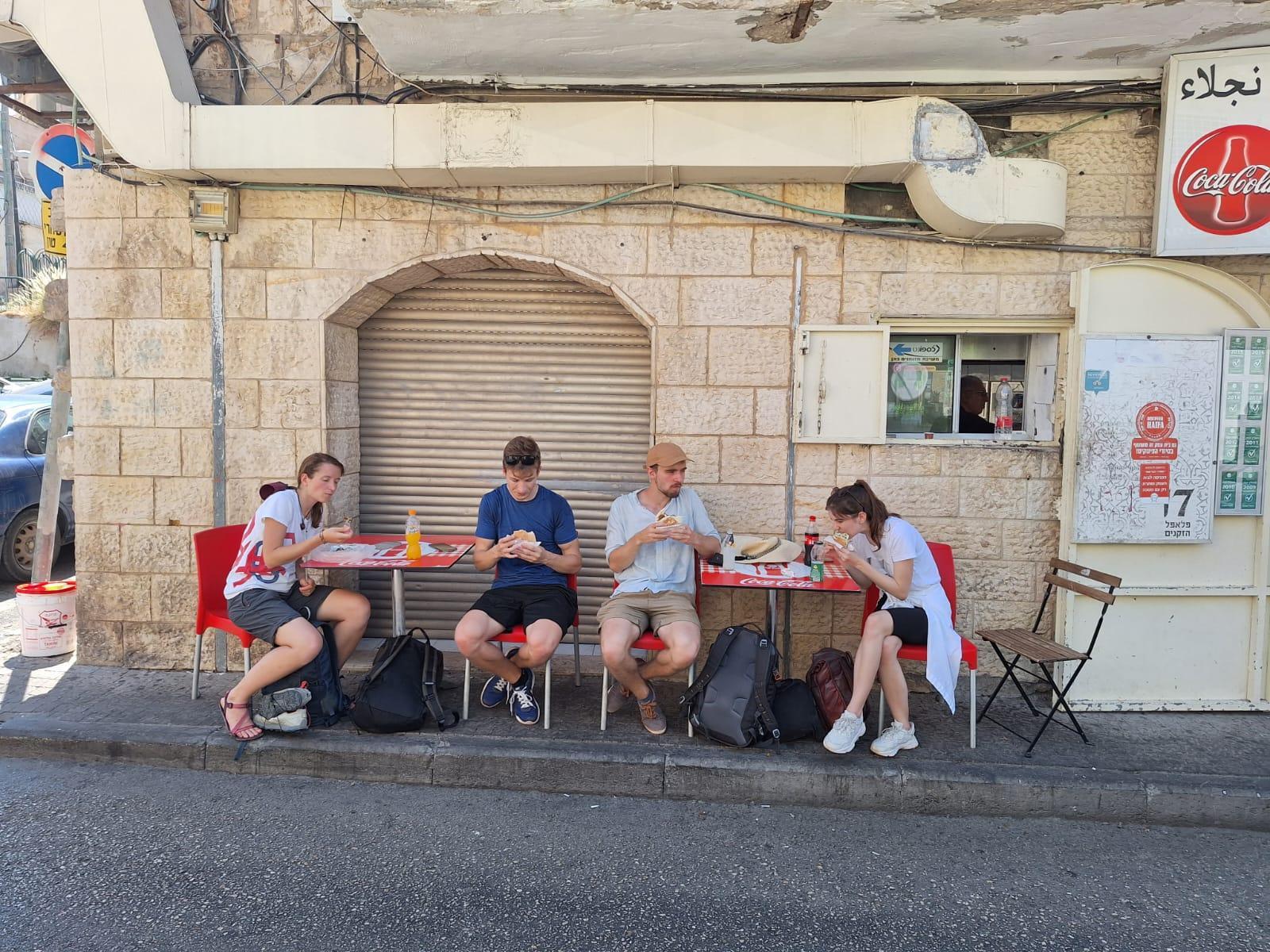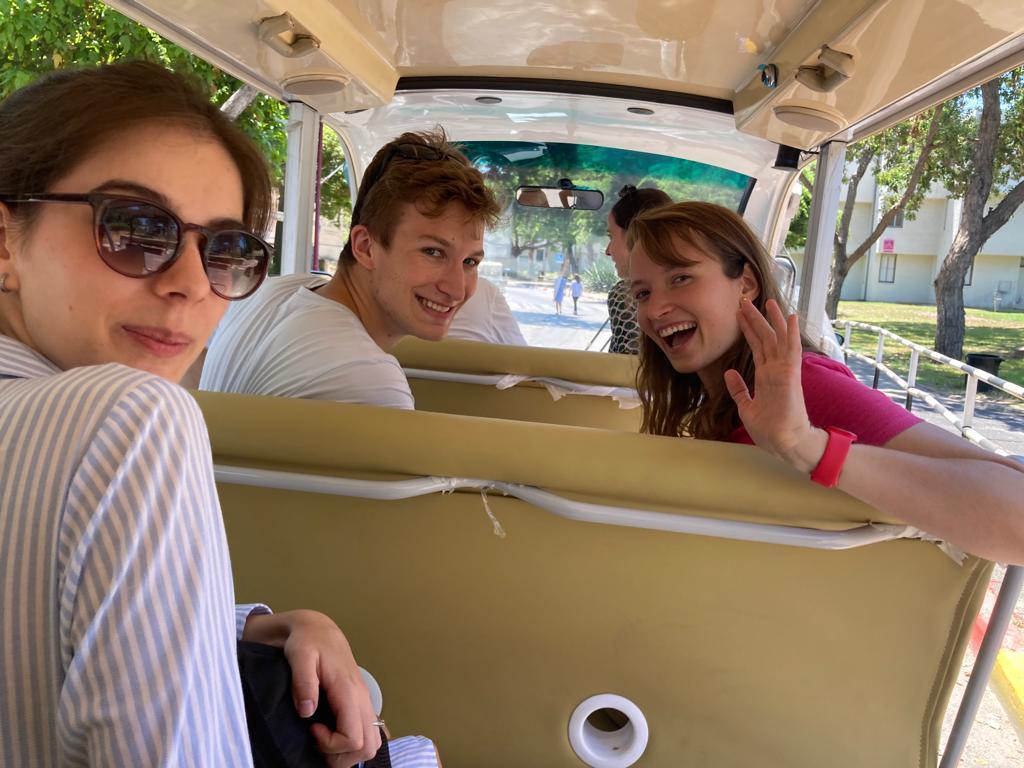Topic
During a prestigious internship in Israel, a student of FEEC UT investigated the effect of anaesthetics on brain activity

Martin Pivnička from FEEC (Faculty of Electrical Engineering and Communication) BUT (Brno University of Technology) had a unique opportunity to participate in neuroscience research. As part of the Neuron & IOCB Tech Internships which are provided by the Neuron Foundation, he travelled to the Hebrew University of Jerusalem for over two months to study the effect of anaesthesia on the electrical activity of the brain.
Although Martin Pivnička from FEEC BUT has just completed his bachelor's study in June, he has already been involved in world-class research. Within his bachelor's thesis, the graduate of Biomedical Technology and Bioinformatics got to collaboration with the International Clinical Research Centre (ICRC) of the St. Anne's University Hospital in Brno “That's where I first heard about the Neuron Foundation scholarship. Also, through my thesis supervisor, I got in touch with a person who had worked in the laboratory at Hebrew University in the past. He introduced me directly to the head of the laboratory himself,” describes Martin Pivnička his trip to the Israeli research workplace.
Pivnička took advantage of the internship, although he admits that he is researching a slightly different topic. “I focus on the analysis of bioelectric signals. Mostly, however, by brain electrical activity, i.e. EEG. The Israeli laboratory is more neuroscience oriented. They are investigating how individual brain centres are connected and on what they can have an impact,” he explains. However, he said the topics are very closely related. “The mutual cooperation was perfect, because I learned a lot of new things in the field of neuroscience, which I had only a sketchy overview of until now. In turn, they learned more about EEG from me,” Pivnička adds.

Specifically, he has been researching the effect of anaesthetics on the electrical activity of the brain in rats in Israel. As well as looking at how anaesthetics affect the EEG graph, and whether they produce a pattern, he was also interested in comparing the EEG graphs during anaesthesia and sleep.
Two months is a too short time for such research, according to Martin Pivnička. “The first month I was mainly getting used to the new environment. So there wasn't so much time for the work itself,” he says. But he expects to collaborate remotely on the research. “I suppose that if there will be a professional article, I will still be finishing some things from the Czech Republic,” he confirms.
Jerusalem – transport and genius loci not working
Martin Pivnička liked Jerusalem very much. “I've been to Tel Aviv and Haifa, but I like the atmosphere of Jerusalem. Unlike Tel Aviv, it has a soul,” he thinks. At the same time, it brings certain challenges in everyday life. “It's a very religiously active city, so I was surprised, for example, that on Saturday, when the Sabbath is celebrated, there is no traffic at all. Other cities have limited traffic too, but at least it works to some extent. In Jerusalem, you have to rely only on taxis,” Pivnička says, adding that he needed to get somewhere on Saturday and had to face this problem a few times.

As for safety, the Czech student didn't have any dramatic experiences during his stay. “When I arrived, the anti-government demonstrations were peaking, but most of them were completely moderate. Mostly it was just chanting and singing. You just have to get used to seeing soldiers with guns on the street,” he says. He managed to return to the Czech Republic before the current conflict broke out. “None of my former colleagues go to the laboratory now. They are all almost constantly in hiding and afraid to go anywhere. One of my Israeli co-workers, who is now at university in Canada, was called up as part of the mobilization. I sincerely hope that the whole situation will calm down as soon as possible,” adds Martin Pivnička.
The science is the same everywhere. The Israelis, however, are more forceful
The young researcher believes that science can be done similarly anywhere in the world. “But it is not possible without the things around that are already different. Communication on campus was not so different. Moreover, the university was a mix of all nationalities. But other than that, it was very different. Israelis are quite different from Czechs in terms of behaviour. They are much more forceful,” Martin Pivnička points out, adding that this different behaviour would be one of the factors he would take into account if he were considering a longer-term internship. “I like the way they conduct research. And I think that career-wise and scientifically, a long-term stay would help me a lot. On the other hand, I found the Israeli style of communication very exhausting during my daily life. Equally, Israel is exhausting for the wallet. You pay two to three times more for most things there than in the Czech Republic,” he says. However, he is currently waiting for his further engineering study at the FEEC BUT and what possible internships or stays the future will bring is still in the stars.
(zeh)
Greater efficiency and completely new applications. Experts from FEEC BUT also collaborate on satellites for very low orbit
Summer research programme at BUT inspired American students to pursue PhD
He was supposed to be an architect. But he studied electrical engineering and is now a recognized expert on optical systems in Canada
A student from BUT founds OMG Robotics and changes the way computer science is taught in Czech schools
Since he was a child, he dreamed of space. Now he wants to put the first student satellite into orbit